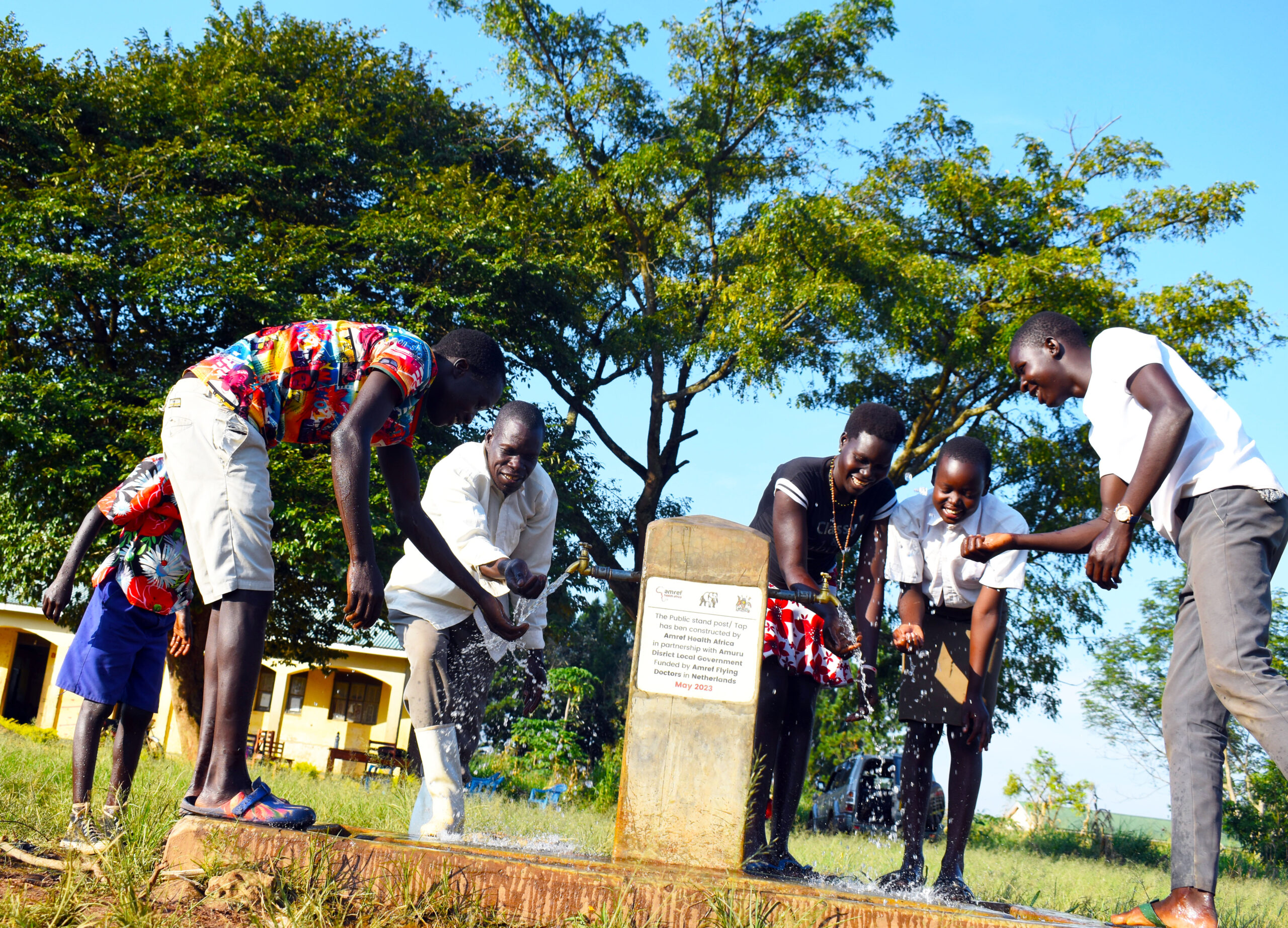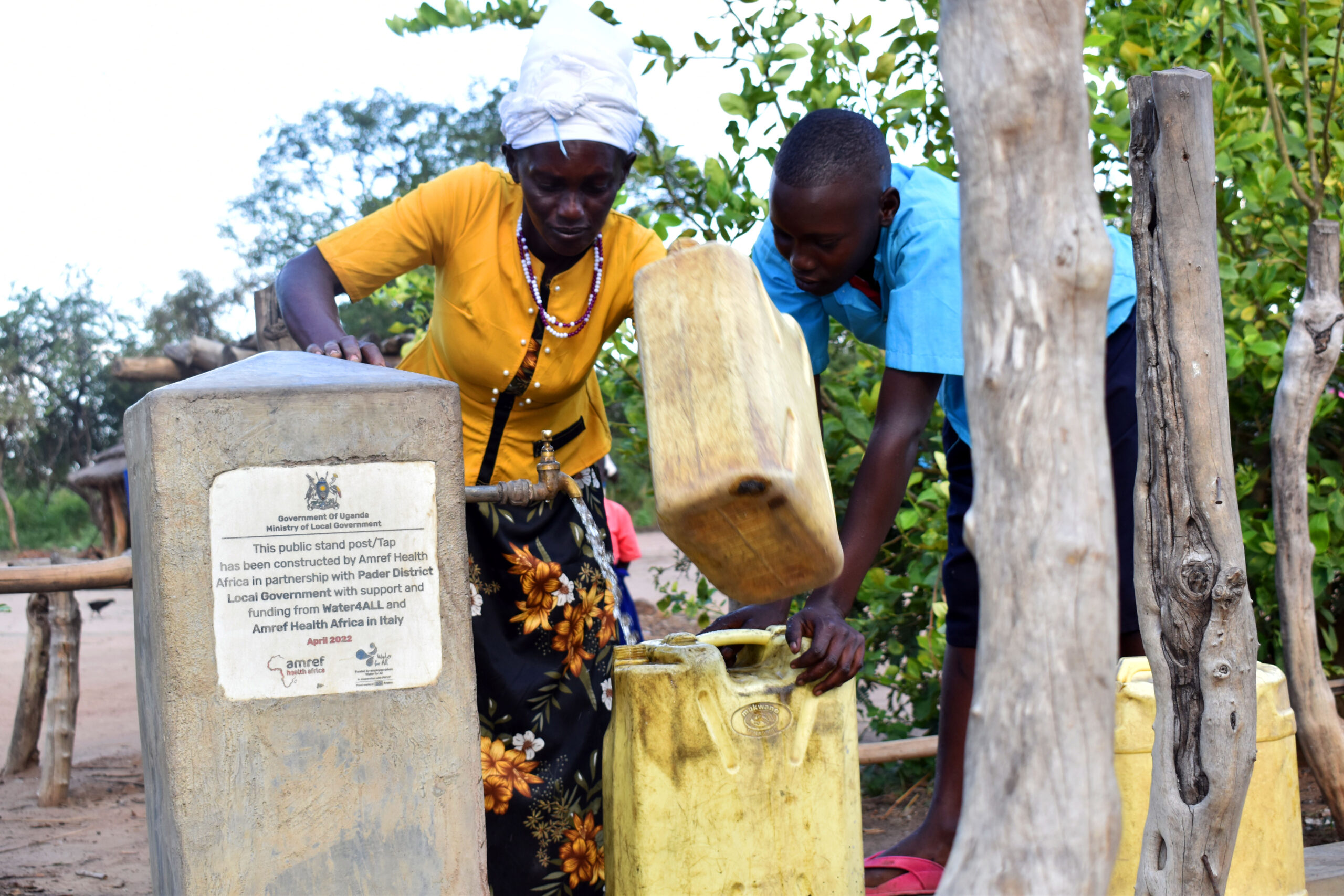Bringing Clean Water and Better Health to Pader: The Need for Solar-Powered WASH and SRHR Solutions.
Friday, 11 October, 2024

In Pader District, basic necessities like clean water and sanitation are still out of reach for many. Children walk long distances to fetch water, often from unsafe sources, while dilapidated latrines pose health risks to entire communities. These challenges highlight the urgent need for Phase Two of the Solar for Inclusive Water, Sanitation, Hygiene (WASH), and Sexual and Reproductive Health Rights (SRHR) project in Pader.
In several communities, children and women are primarily responsible for collecting water, which not only limits their opportunities but also exposes them to potential harm and health risks. The trek for water means missed school days for children, while the lack of adequate sanitation facilities exposes families to preventable diseases. Without proper infrastructure, these communities face a daily struggle for basic needs, compounded by inadequate access to reproductive health services.
The Solar for Inclusive WASH and SRHR project with funding from Wallenberg Foundation and Foundation Prosolidar brings sustainable solutions through solar energy. Phase Two aims to expand on the success of the initial phase by installing more solar-powered mini water systems and enhancing sanitation facilities. This phase also integrates SRHR services to ensure comprehensive support for the health and well-being of all community members, especially women and young people.
Dignity and Choice: Mr. Paul Okot’s Story –Village health team member
In Pader District, where dusty roads stretch out for miles and water is often a distant dream, Mr. Paul Okot, a Village Health Team (VHT) member, sees the daily struggles of his community firsthand. He knows too well the long journeys children make to fetch water, often sacrificing their education for the bare essentials of life.
But Paul has a vision—a hope fueled by the promise of solar-powered solutions that could change everything currently supported by Amref Health Africa.
“One day,” Paul says, “we’ll have clean water close to home. These solar-powered systems will make water accessible, right here in our village. No more walking for miles, no more drinking from unsafe sources. We’ll finally have safe water, just a few steps away.”
For Paul, it’s more than just water. It’s about transforming lives. He dreams of the day when dilapidated latrines will be replaced with clean, dignified facilities. “If we can upgrade these latrines,” he explains, “we’ll reduce the health risks that come from poor sanitation. People won’t have to worry about diseases like they do now. A simple change like this can protect an entire community.”
But Paul’s vision goes even further. He imagines a future where women and young people have the power to control their health. With better sanitation, it will be possible to offer reproductive health services in a safe environment. “It’s not just about water and latrines,” he says with conviction. “It’s about giving people dignity and choice. With these changes, we can ensure that everyone in Pader has access to the care they need.”
For Paul, the dream of a brighter future is close. And with the solar-powered WASH and SRHR solutions, he believes that change is just on the horizon for Pader District.
The Road Ahead
The path to improved health, education, and well-being for Pader District is clear. By supporting Phase Two of the Solar for Inclusive WASH and SRHR project, we can provide sustainable solutions that transform lives and create healthier communities. Together, we can bring about a future where no child has to sacrifice education for water, and every family can access the essentials for a healthier life.
Amref Health Africa teams up with African communities to create lasting health change.



